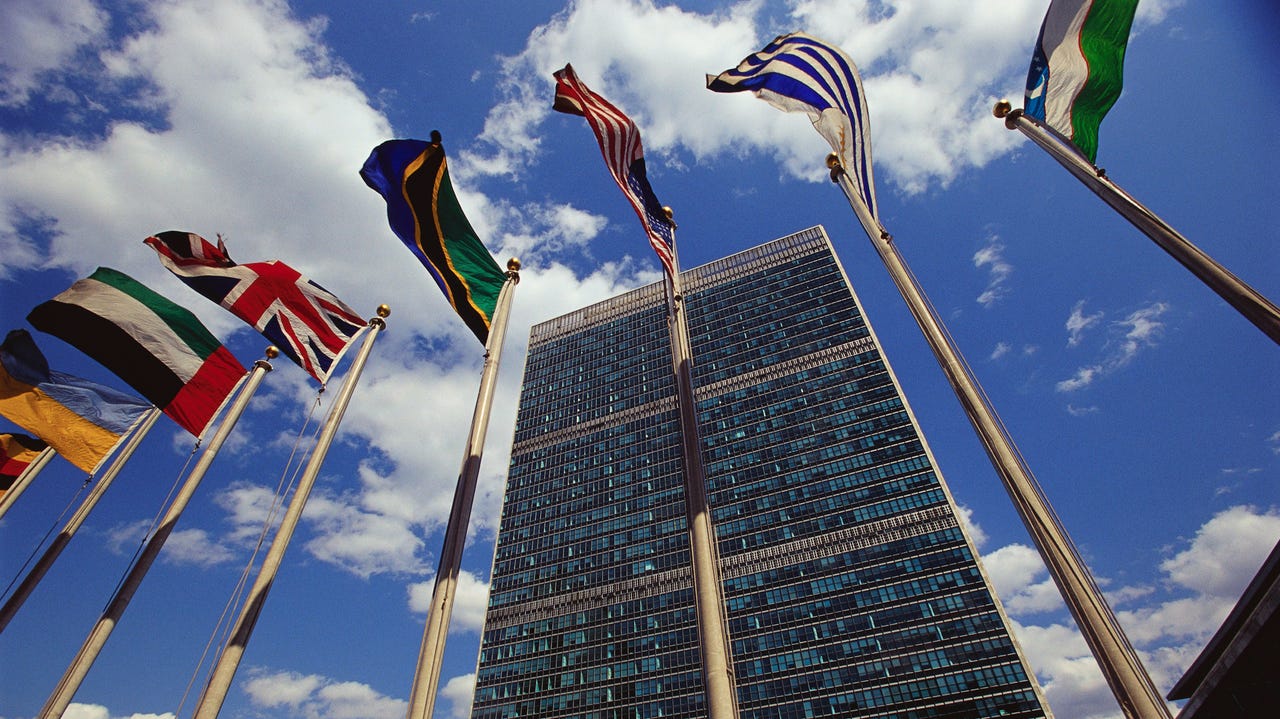'ZDNET Recommends': What exactly does it mean?
ZDNET's recommendations are based on many hours of testing, research, and comparison shopping. We gather data from the best available sources, including vendor and retailer listings as well as other relevant and independent reviews sites. And we pore over customer reviews to find out what matters to real people who already own and use the products and services we’re assessing.
When you click through from our site to a retailer and buy a product or service, we may earn affiliate commissions. This helps support our work, but does not affect what we cover or how, and it does not affect the price you pay. Neither ZDNET nor the author are compensated for these independent reviews. Indeed, we follow strict guidelines that ensure our editorial content is never influenced by advertisers.
ZDNET's editorial team writes on behalf of you, our reader. Our goal is to deliver the most accurate information and the most knowledgeable advice possible in order to help you make smarter buying decisions on tech gear and a wide array of products and services. Our editors thoroughly review and fact-check every article to ensure that our content meets the highest standards. If we have made an error or published misleading information, we will correct or clarify the article. If you see inaccuracies in our content, please report the mistake via this form.
The UN's AI resolution is non-binding, but still a big deal - here's why


The rise of generative AI has shown the world the grand potential of this technology to assist people in numerous ways -- but it has also revealed its dangers. The technology has already caused data leaks, copyright infringement lawsuits, harmful deep fakes, and more, showcasing the imminent need for safety regulations.
Also: AI is changing cybersecurity and businesses must wake up to the threat
As a result, on Thursday, the United Nations General Assembly unanimously adopted a US-led resolution, backed by more than 120 member states, to ensure AI design, development and deployment is "safe, secure and trustworthy."
The UN General Assembly on Thursday adopted a landmark resolution on the promotion of “safe, secure and trustworthy” artificial intelligence (AI) systems that will also benefit sustainable development for all
— UN News (@UN_News_Centre) March 21, 2024
Read more ⤵️https://t.co/xuDcyI4qRL pic.twitter.com/5LpKWvCuBf
"Let us reaffirm that AI will be created and deployed through the lens of humanity and dignity, safety and security, human rights and fundamental freedoms," said Linda Thomas-Greenfield, US Ambassador to the UN.
What exactly does the resolution entail? You can read the text here or find the highlights below.
When was the resolution adopted?
The resolution was adopted on March 21, 2024, by the UN General Assembly without a vote, meaning that all 193 member nations agreed to pass the resolution unanimously.
"With today's adoption in the UN General Assembly of the US-led resolution on artificial intelligence, UN Member States have spoken with one voice to define a global consensus on safe, secure, and trustworthy AI systems for advancing sustainable development," said Anthony Blinken, US Secretary of State.
What AI limitations and protections does the resolution have?
The resolution begins by recognizing both the potential and peril of AI. When used properly, some of the potential benefits, as listed in the resolution, include accelerating the achievement of the UN's 17 Sustainable Development Goals, promoting digital transformation and peace, overcoming digital divides within countries, and more.
However, malicious "design, development, and deployment" of AI systems could have catastrophic effects including undermining sustainable economic, social, and environmental development; widening digital divides; reinforcing biases that encourage discrimination; and more.
Also: 3 ways to accelerate generative AI implementation and optimization
As a result, the resolution stresses the urgency of achieving "global consensus on safe, secure and trustworthy artificial intelligence systems..."
The resolution delineates the various measures that should be taken to ensure proper safeguards and that people's rights are protected. These include a call for international cooperation for the promotion of safe, secure, and trustworthy AI; continued development and support from member states for regulatory and governance frameworks; insurance of equitable access to the technology across countries; respect for human rights and their fundamental freedoms; fair, inclusive, and responsible use of data; and more.
What are the consequences of not agreeing to the resolution?
The resolution does not include measures to inflict consequences or compel countries to adhere to the agreement. So, technically, countries that agreed to the resolution do not actually need to abide by it. Despite not being enforced, it is still a monumental step toward global regulation of AI, setting a precedent for future legislation. It also provides a framework for countries to make their own governing policies.
This adoption of the resolution marks a significant moment for AI development because it is the first global resolution regarding the powerful, emerging technology.